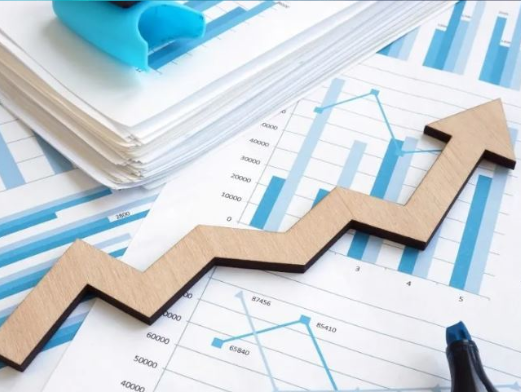
Program's Overview
The programme of statistics Applied to Economy started at INES-Ruhengeri in 2010
This program was designed to produce competent graduates’ executives on the job market who are capable of designing, coordinating researching, providing technical advisors or continuing further studies in their area of specialization. Both females and males, who are able to apply statistical knowledge in understanding and evaluating economic events. It is emphasized that students study major subjects in the field of mathematics, statistics and economics. Great emphasis is put at encouraging participation of both females and males with a particular attention accorded to female students given that general trend of their performance tend to be lower than of their males’ counterparts. These will contribute in achieving the major purpose of establishing empirical link between the three fields, using case studies and project based approaches. Currently the department runs a four-years program where graduates are expected to graduate with bachelor in statistics applied to economy.
Entry Requirements
-
Combinations
-
. PCM: Physics - Chemistry – Mathematics;
· MPG: Mathematics - Physics - Geography
· MPC: Mathematics – Physics - Computer Sciences
· PEM: Physics – Economics - Mathematics
· MEG: Mathematics - Economics - Geography
· MCB: Mathematics - Chemistry - Biology,
· MPB: Mathematics-Physics-Biology,
· MCE: Mathematics-Computer Science-Economics,
· TTC/Science & Math Option,
A prospective student to enroll in the first year in Bachelors of Science with Honors in Statistics Applied to Economy must have successfully completed secondary school level at least 2 principal pass and having majored at least in the above combinations
-
Required documents
-
Identification Card (ID card)
Secondary school Diploma
Passport photo
Transcripts
And any other related discipline where Mathematics is taught at least 3 hours per week may apply for this option.
Exit and Career Profile
Graduates possess a comprehensive understanding in Mathematics, Statistics, Micro economy, Macro economy, Public Finance, Management and accounting.
Analysis and interpretation of statistical information collected and draw conclusions, writing surveys reports, scanning an environment and draw opportunity for the creation of a business.
Using statistical software (SPSS, E-Views, STATA, R) to describe socio-economic phenomena and to predict their evolution in future, managing surveying activities.
Career Profile: With knowledge, skills and attitudes, the graduates can competently perform as: Statistician data manager (in Enterprises and public organisms, Banks, Offices of consultancy,), data base development expert, Data analyst, Research methodology designer, planner, controller and coordinator in research centres, advisor in statistics (presentation, interpretation) management.
Contacts of the Head of Department
Offered Modules
Year 1
| No | Module Title | No of credits | Semester |
|---|---|---|---|
| 1 | Languages I | 10 | 1 |
| 2 | Philosophical studies | 10 | |
| 3 | Research Skills | 10 | |
| 4 | Mathematical Analysis I | 10 | |
| 5 | Introduction to Statistics | 10 | |
| 6 | Algebra | 15 | |
| 1 | Principals of Economics | 15 | 2 |
| 2 | Accounting | 15 | |
| 3 | Management | 10 | |
| 4 | Probability Theory | 15 |
Year 2
| No | Module Title | No of credits | Semester |
|---|---|---|---|
| 1 | Inferential Statistics | 15 | 1 |
| 2 | Applied Statistical computing | 15 | |
| 3 | Mathematical analysis II | 15 | |
| 4 | Introduction to Demography | 10 | |
| 5 | Languages II | 10 | |
| 1 | Introduction to Programming | 15 | 2 |
| 2 | Introduction to Official Statistics | 10 | |
| 3 | Econometrics I | 10 | |
| 4 | Sampling Methods | 15 | |
| 5 | Intermediate Economics | 15 |
Year 3
| No | Module Title | No of credits | Semester |
|---|---|---|---|
| 1 | System of National Accounts | 15 | 1 |
| 2 | Development Economics | 15 | |
| 3 | Stochastic Processes and Time series | 15 | |
| 4 | Research Methodology | 10 | |
| 1 | Advanced economics | 15 | 2 |
| 2 | GIS and Spatial Statistics | 10 | |
| 3 | Project Planning and Management | 10 | |
| 4 | Operation Research | 10 | |
| 5 | Internship | 15 |
Year 4
| No | Module Title | No of credits | Semester |
|---|---|---|---|
| 1 | Monitoring and Evaluation | 10 | 1 |
| 2 | Economics and Social Statistics | 10 | |
| 3 | Entrepreneurship | 10 | |
| 4 | Multivariate Analysis | 15 | |
| 5 | Advanced Econometrics | 15 | |
| 1 | Internship | 15 | 2 |
| 2 | Dissertation | 15 |
| Photo | Names | Qualification | Rank | Area of specialization | Bio |
|---|---|---|---|---|---|
| No profile Available | |||||





